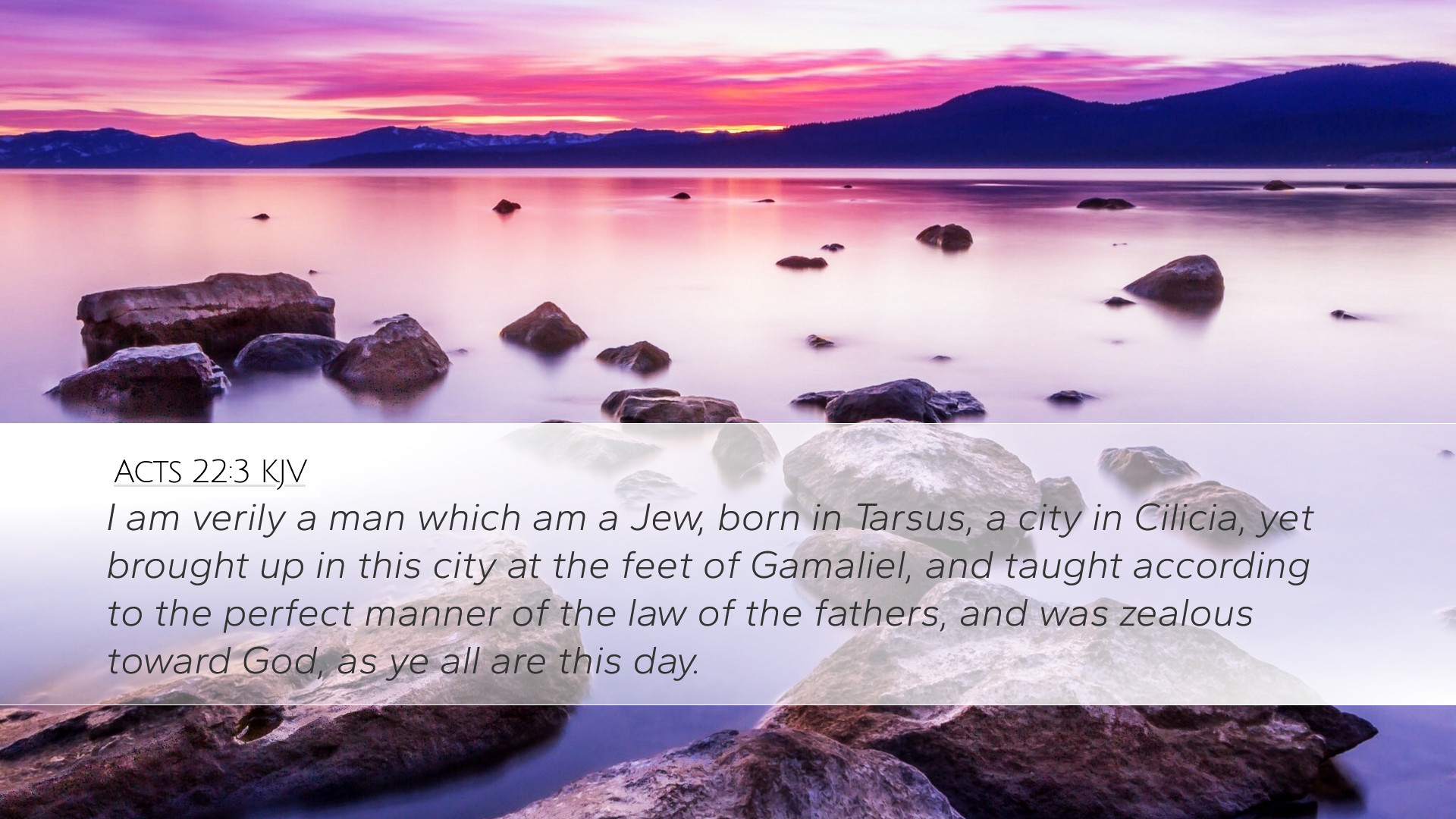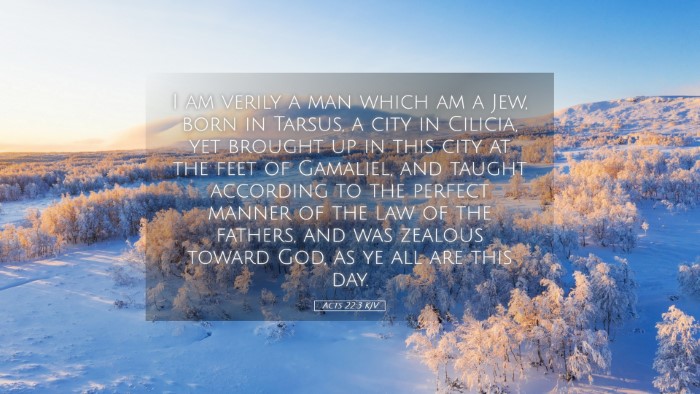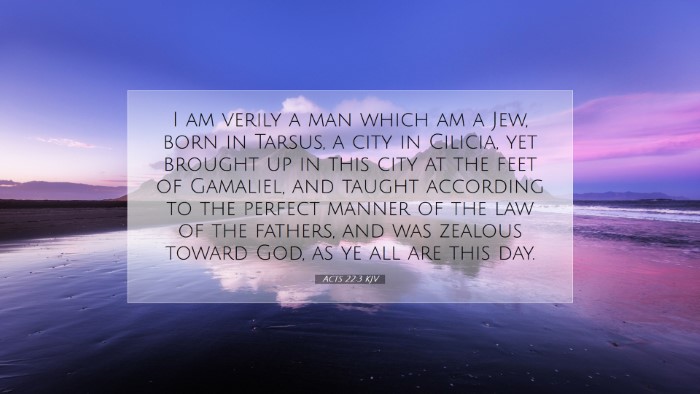Bible Commentary on Acts 22:3
Verse: "I am indeed a Jew, born in Tarsus of Cilicia, but brought up in this city at the feet of Gamaliel, taught according to the strictness of our father's law, and was zealous toward God, as you all are today." (Acts 22:3)
Introduction
This verse captures a poignant moment in the Apostle Paul's defense before a hostile crowd in Jerusalem. Paul succinctly outlines his background and education, emphasizing his Jewish identity and rabbinical training. Understanding this context is vital for grasping the theological and cultural implications of his ministry and the challenges he faced.
Historical Context
In Acts 22, Paul addresses the Jewish audience detailing his life before and after his conversion, which is essential for appreciating his role as a bridge between Judaism and the emerging Christian faith. Paul was a Pharisee, trained under Gamaliel, a respected teacher, which lent credibility to his testimony.
Insights from Public Domain Commentaries
-
Matthew Henry:
Henry emphasizes the importance of Paul's Jewish heritage. He states that the Apostle's identity as a Jew was instrumental in establishing his authority to speak to the Jewish people. By mentioning his upbringing "at the feet of Gamaliel," Paul not only highlights his scholarly background but also denotes his dedication to the traditions and laws that defined Jewish life. This cultivated respect among his peers, positioning him well to confront the misconceptions about his faith.
-
Albert Barnes:
Barnes expands on the significance of Paul's location of birth—Tarsus. He notes that being born in such a prestigious city of Cilicia, known for its education and culture, adds another layer to Paul's identity. It demonstrates his comprehensive understanding of both the Jewish law and the Hellenistic culture of his time. This duality equips Paul to relate to diverse audiences, making him an effective evangelist.
-
Adam Clarke:
Clarke elaborates on the phrase "taught according to the strictness of our father’s law." He points out that this statement not only reflects Paul’s commitment to Jewish law but also indicates the rigorous nature of his training. Clarke suggests that Paul's zealousness towards God was evident from the onset, even persecuting the early church, which he viewed as a threat to the sacred traditions he held dear.
Exegesis of the Text
Paul’s declaration as a Jew is multifaceted. It serves to affirm his place within the Jewish community, addressing the crowd's potential biases against his new beliefs in Christ. Each component of his testimony serves to build rapport and credibility before moving on to his transformative experience with Christ on the road to Damascus.
Cultural Significance
In a culture steeped in identity, Paul’s assertion of his Jewish heritage and rigorous education would resonate deeply with his listeners. By aligning himself with the traditional values espoused by Jewish leaders, Paul prepares the way to share the revelation of Christ without completely alienating his audience.
Theological Implications
This statement of identity brings forth several theological implications worth contemplating:
- Continuity of Faith: Paul’s acknowledgment of his Jewish roots illustrates the continuity between the Old Testament faith and the New Testament revelation. He does not dismiss his heritage but rather affirms it as a foundation for understanding Christ.
- Zeal and Transformation: Paul’s fervent zeal for God, which led him into persecution, eventually transformed into a passionate advocacy for the Gospel. This reveals the redemptive nature of God’s grace and the capacity for personal transformation.
- Mission to the Gentiles: His background equipped him for the mission ahead, emphasizing that the message of Christ transcends cultural and social barriers, foreshadowing the inclusion of the Gentiles in God’s plan.
Application for Today
The richness of Paul’s statement encourages contemporary believers to appreciate their own backgrounds while engaging with others. His life exemplifies how to engage respectfully and effectively with those of different beliefs or lifestyles, all while maintaining fidelity to one’s convictions.
Reflection Questions:
- How does your own background shape your understanding of Scripture?
- In what ways can you use your own story to connect with others and share the Gospel?
- What does it mean to be zealous for God in today’s society?
Conclusion
Acts 22:3 serves as a profound reminder of the interplay between identity and faith. Paul’s recounting of his Jewish upbringing, his education under Gamaliel, and his zeal for God adds depth to his conversion story. As the church continues to navigate a diverse and often divided world, the Apostle's example remains relevant in teaching believers to embrace their journeys while courageously proclaiming the life-changing message of Christ.


